Published 2nd July 2015
Responses should be received no later than Wednesday, 19th August 2015
Right To Ride Response To The Consultation – pdf – 1.74mb – Click Here
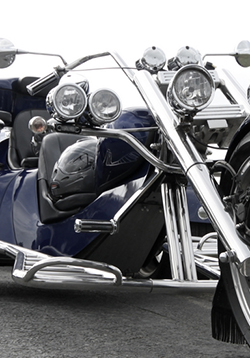 We have received a DOE (Department Of The Environment) – Road Safety and Vehicle Regulation Division consultation for a “Proposal for the Mandatory Wearing of Helmets on Motor Tricycles”, in Northern Ireland.
We have received a DOE (Department Of The Environment) – Road Safety and Vehicle Regulation Division consultation for a “Proposal for the Mandatory Wearing of Helmets on Motor Tricycles”, in Northern Ireland.
This highlights that the wearing of helmets for riders of, and passengers on, motor tricycles used on public roads in Northern Ireland would be a mandatory requirement.
The DOE through the Road Traffic Amendment Bill (primary and secondary legislation) and a previous consultation, decided that after public concern was raised regarding motor quadricycle (quad bike) rider collisions on the public road, to implement legislation to enforce the wearing of helmets by quad bike riders.
During this process the DOE have said that their officials were committed to consider also extending the requirement to wear helmets when riding motor tricycles on the public road.
Electronic copies of the consultation papers are available on the DOE’s website in the Road Users – Road Safety and Vehicle Regulation – Consultations & Publications – Consultations section.
The direct link to the papers can be found by – Clicking Here
Or direct from here on Right To Ride:
Proposal for the Mandatory Wearing of Helmets on Motor Tricycles – June 2015-pdk 80kb
Responses should be received no later than Wednesday, 19 August 2015.
Initial Thoughts
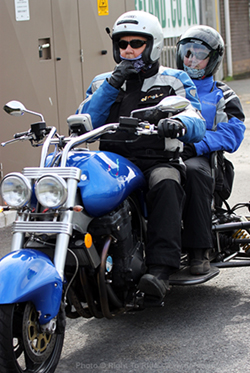 We have had a quick read through and there are some bits like this being proposed – “Every person driving or riding a motor tricycle on a road must wear protective headgear, except when a motor tricycle: has seatbelts fitted when required by the relevant regulations.”
We have had a quick read through and there are some bits like this being proposed – “Every person driving or riding a motor tricycle on a road must wear protective headgear, except when a motor tricycle: has seatbelts fitted when required by the relevant regulations.”
So not all trikes are being proposed to require the wearing of helmets.
The civil servants say that the wearing of helmets is being proposed in order to reduce road casualties, but they also state, “However, it should be noted that even if these riders were wearing helmets it would not have necessarily prevented injury or death.”
Trikes are substantially different to PTWs. In fact, Right To Ride’s Elaine Hardy notes that “there is another perspective which is that because trikes are far more stable – they have three wheels – in a certain respect, there is far less possibility of suffering injuries or fatalities by riding a trike – statistically they don’t even appear as an issue – 2 fatalities between 2008 and 2014 (6 years) in Northern Ireland – 3 seriously injured – during the same period. These figures do not reflect the fact that these riders would have died or been seriously injured anyway – in other words, head protection or lack of, wasn’t the cause of their death.”
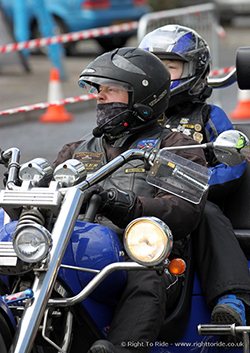 Our opinion is that because of the references to safety and reducing road casualties then it would be hard to stop that particular bandwagon, even if there is no need to introduce this proposal.
Our opinion is that because of the references to safety and reducing road casualties then it would be hard to stop that particular bandwagon, even if there is no need to introduce this proposal.
A proposal that is for road safety technically cannot take into account an adults own responsibility to have a freedom of choice, road safety cannot cope readily with that particular basic persons right.
Adults that ride road going and road legal trikes who are licence holders to ride these vehicles on the public roads are a close knit community, they cannot be classed overall as “normal” road users.
One might say that this community has made the choice and taken deliberate steps to operate these vehicles in a responsible manner in terms of road safety. It is a minority community of road users and hence should have been consulted more closely and personally on the effect of this proposal.
What we have in the Northern Ireland Assembly are elected representatives, the politicians. Then we have government departments which in this instance is the DOE (Department Of The Environment) Road Safety and Vehicle Regulation Division officials, we have committees of MLAs who “steer” the government departments and the ministers who “head” these departments and the main body of politicians in the Northern Ireland Assembly, not all agreeing on the issues.
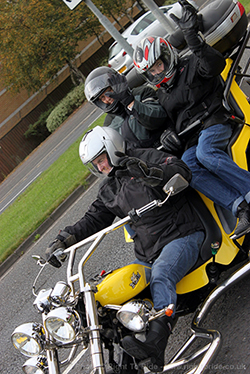 In this instance for this proposal we have a statement from the DOE officials, which is that they are committed to consider also extending the requirement to wear helmets for Quad Riders, which is still going through the Northern Ireland Assembly.
In this instance for this proposal we have a statement from the DOE officials, which is that they are committed to consider also extending the requirement to wear helmets for Quad Riders, which is still going through the Northern Ireland Assembly.
What we do not seem to have is any commitment other than from Civil Servants, who should not, in our opinion, be a “driving” force to introduce primary legislation into a bill at this late stage in the bill’s development. This is a matter for elected representatives and a step too far for unelected officials to be considering.
Legislation should come through the democratic process – the citizen first and then our elected representatives – not driven by these civil servants and any personal road safety thoughts or good ideas that they may have.
The notion that a government department, in this instance, the DOE, its minister and officials knows better, is of concern in this last bastion of road user freedom.
Rider Say
As riders have already said:
- I believe that it should be down to the individual if they wear a helmet or not ,not forced to do so. The powers to be are making life on the whole very hard on bikers/trikes we play more road tax than most cars out there we have loads of different tests to do to get a licence in first place.
- I know people who choose to wear a helmet. Personally I do not – something to do with the last little bit of freedom we have in this country.
- I fear this is a well intentioned, but ignorant proposal based on a snap decision/opinion from people with little knowledge other than “it sounds like a good idea”.
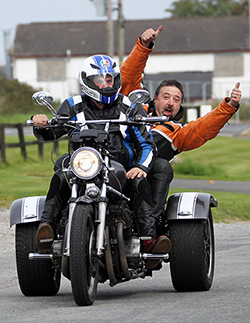 Our thoughts are that this does not need to be introduced in Northern Ireland, we are not aware of any plans to propose this requirement in the rest of the UK (England – Scotland – Wales) British Overseas Territories or Crown Dependencies, but we would like your thoughts as you all are the riders and users.
Our thoughts are that this does not need to be introduced in Northern Ireland, we are not aware of any plans to propose this requirement in the rest of the UK (England – Scotland – Wales) British Overseas Territories or Crown Dependencies, but we would like your thoughts as you all are the riders and users.
We have already had some debate on the Right To Ride Facebook page – Facebook – and on the Island Trikers group page – Island Trikers
As a group/club/association or individuals, then the documents are up above to respond.
As Right To Ride we will be responding, however in the meantime, we would love your thoughts either here or you can also send them to trevor.baird@righttoride.co.uk for possible inclusion in any response (keep it clean!)
Trike Riding
The pictures on this page have been taken over the last few years at weekend events. They show riders enjoying their chosen means of getting about on our roads and gathering, mainly to raise thousands of pounds for local charities and having fun!
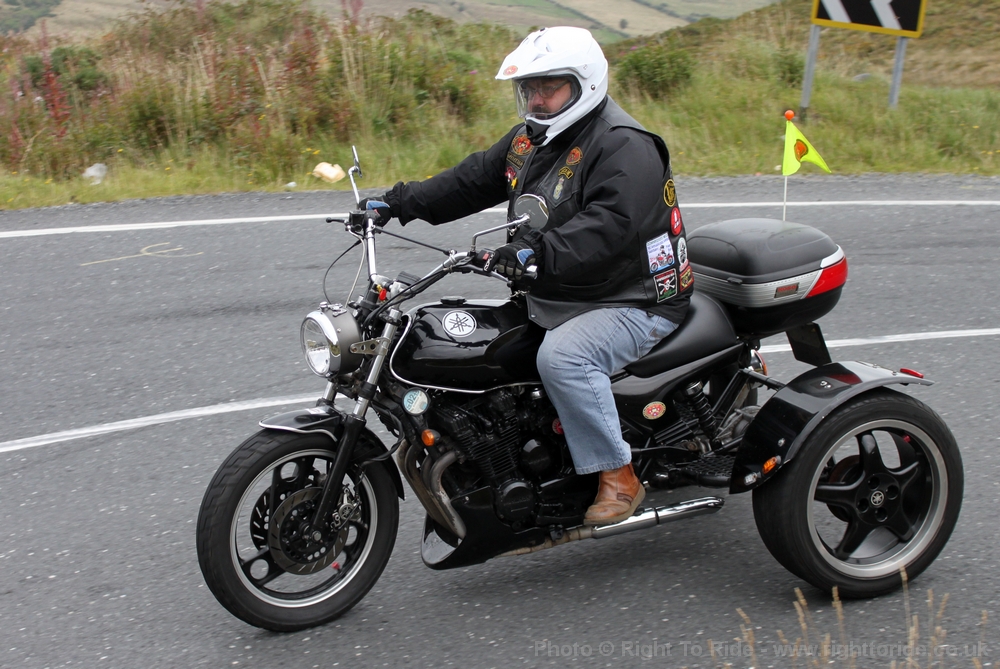
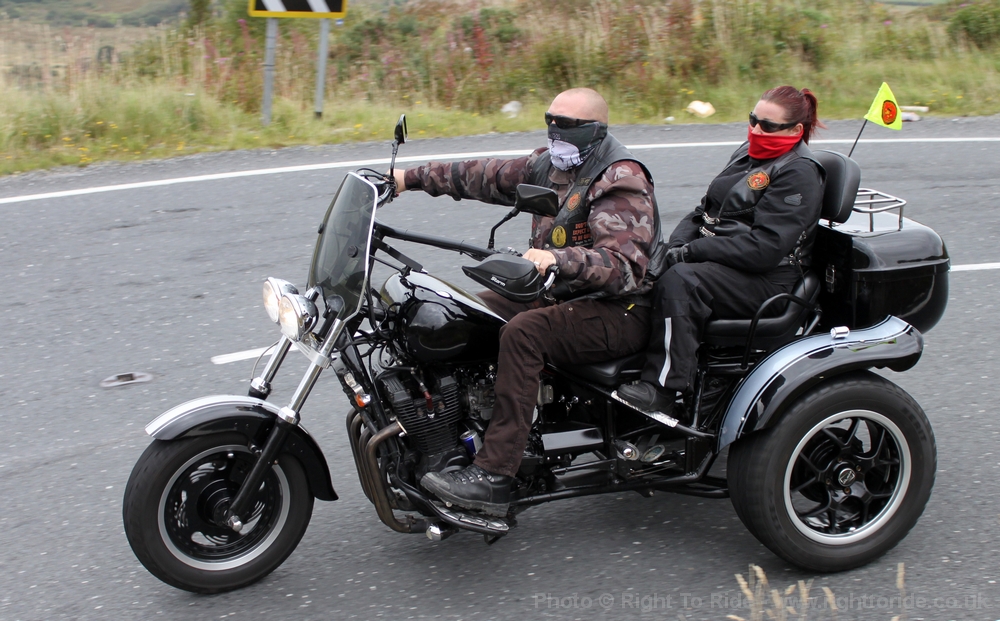
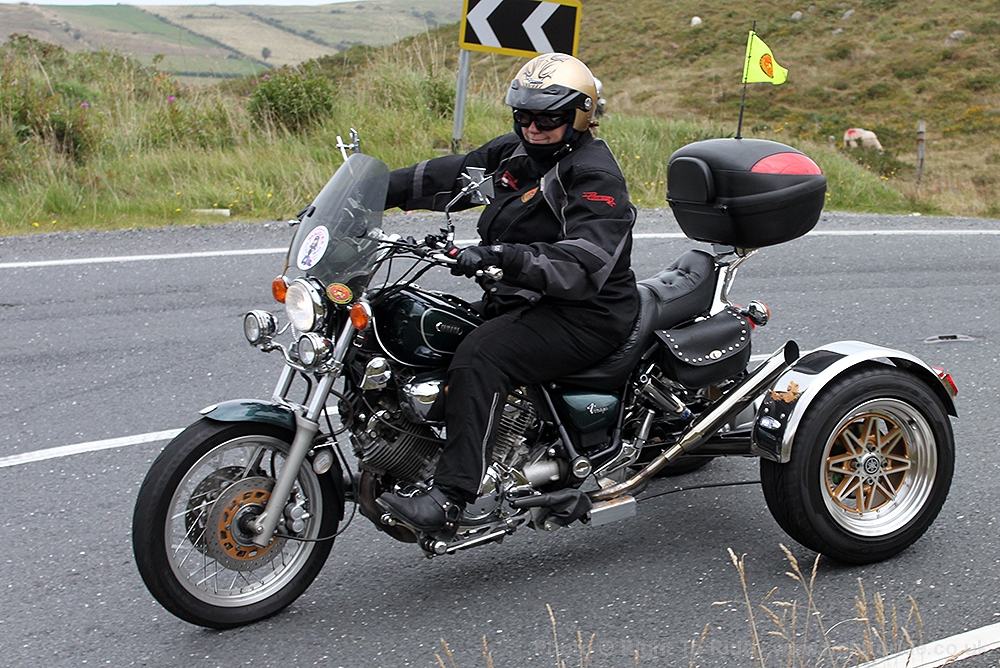
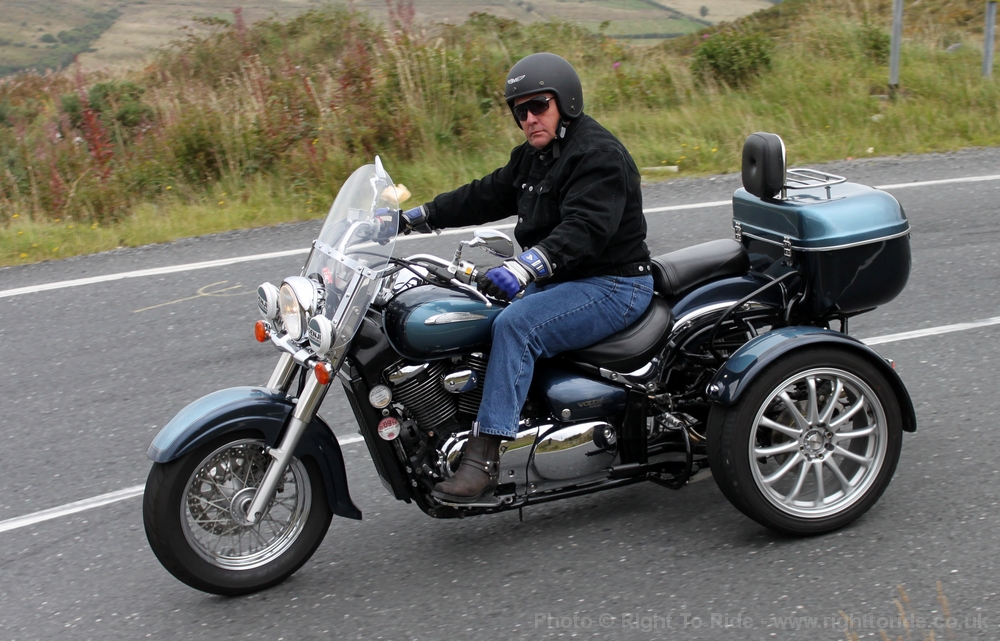
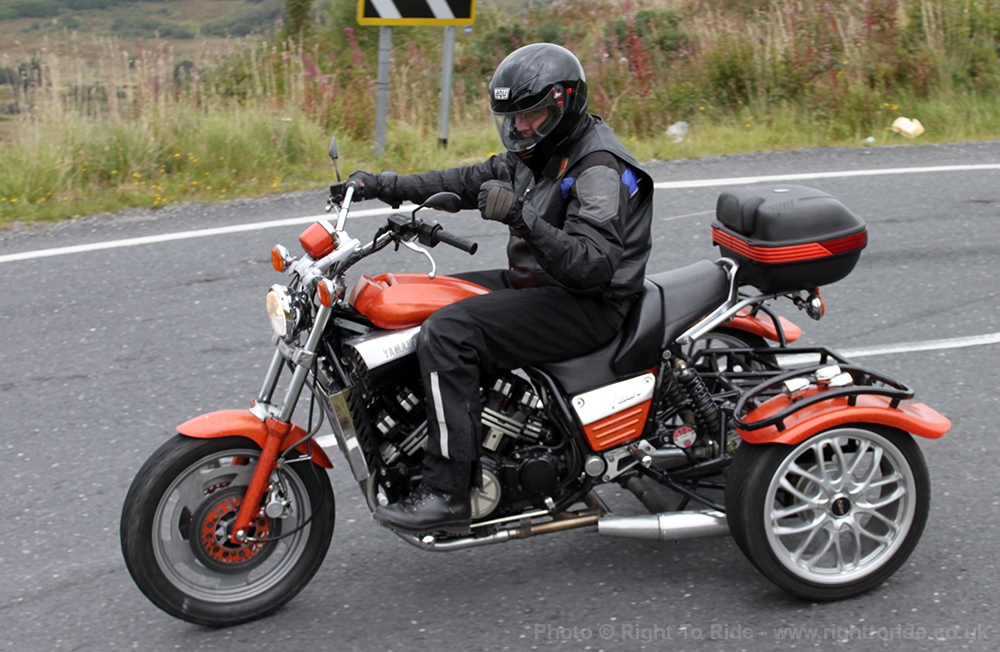
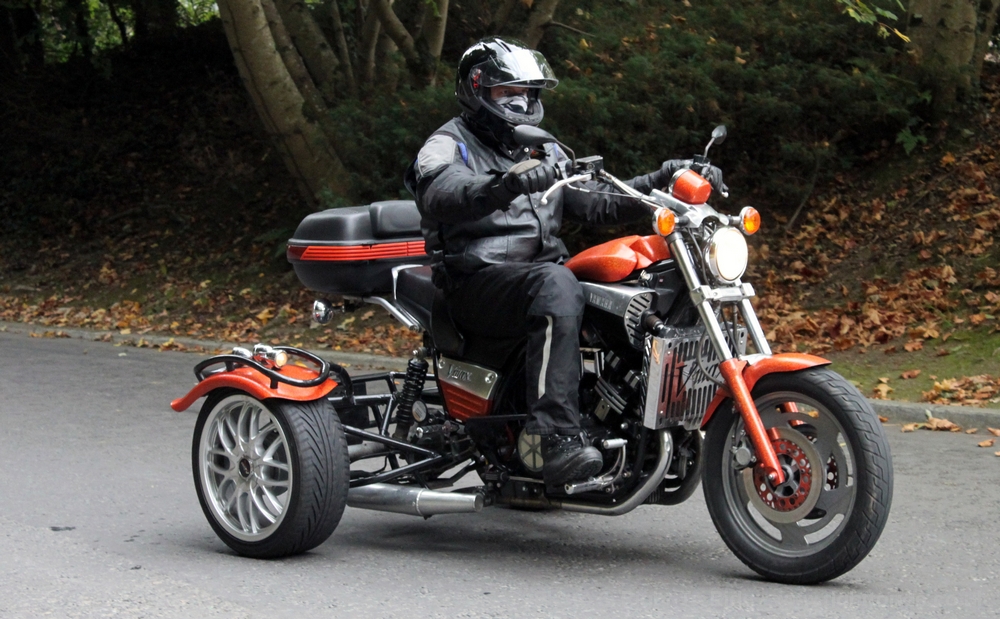

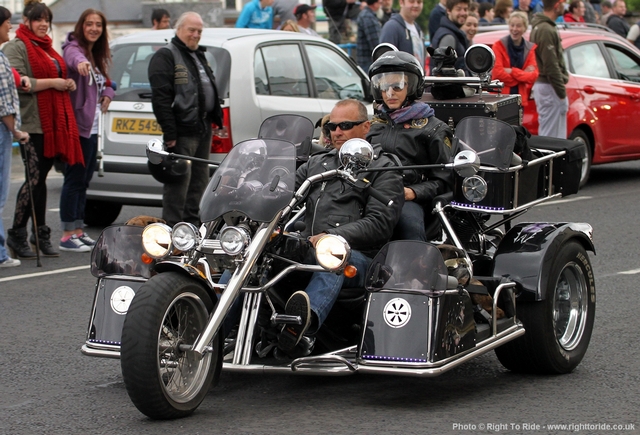
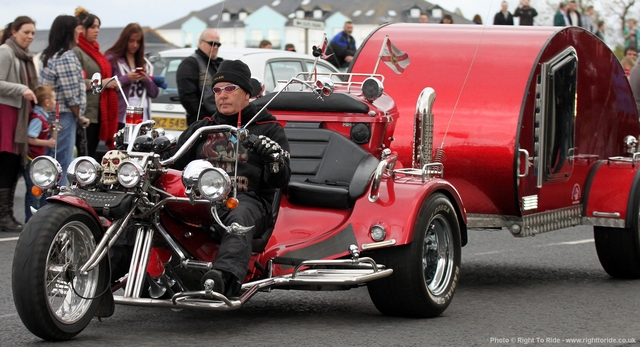
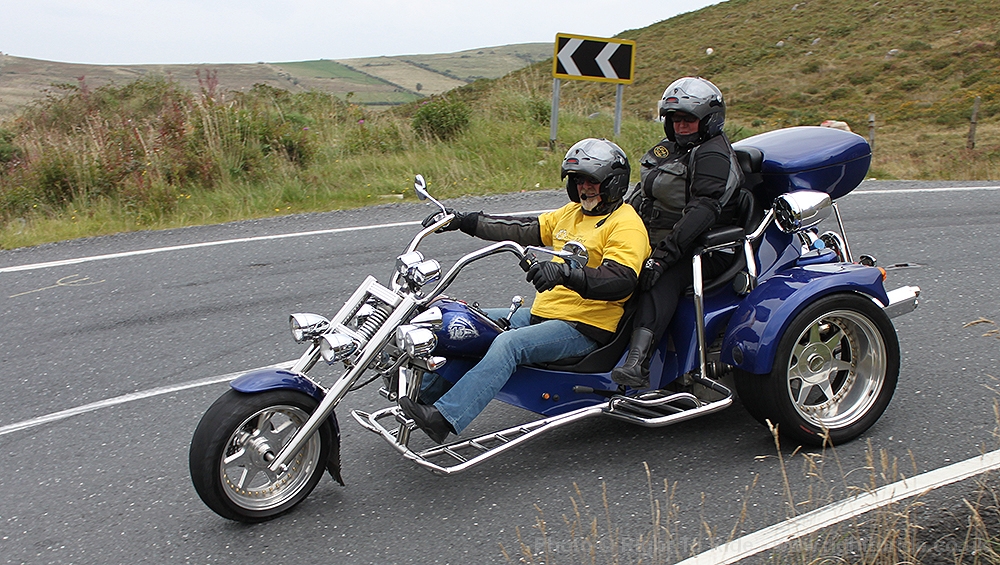
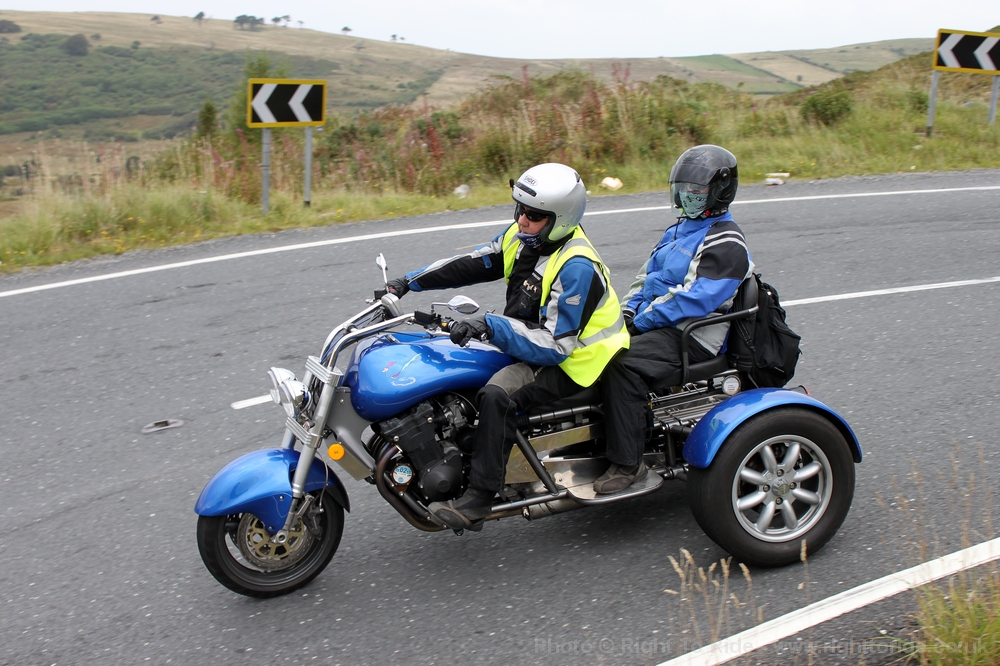
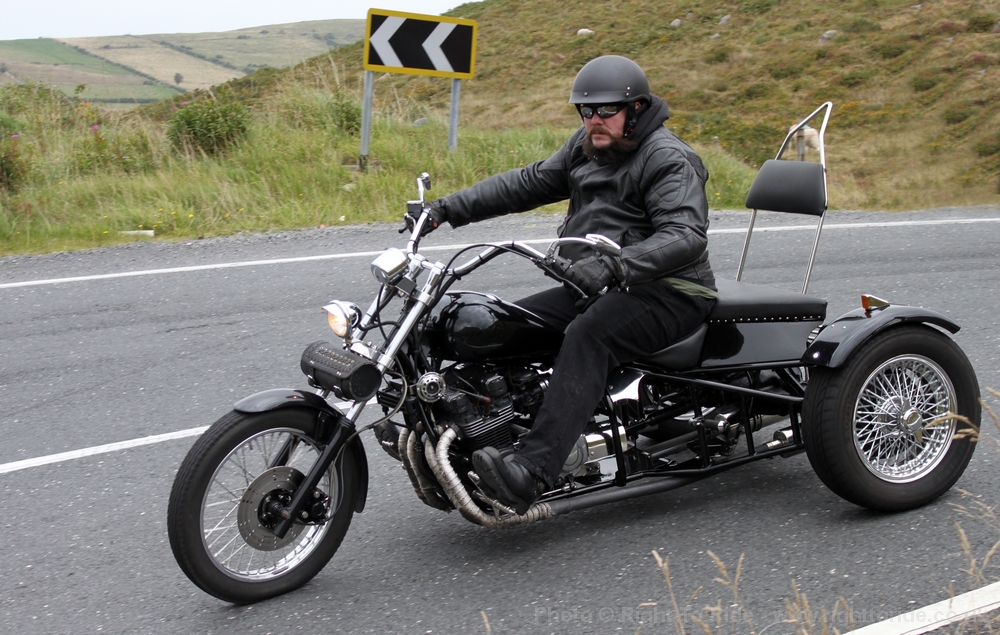
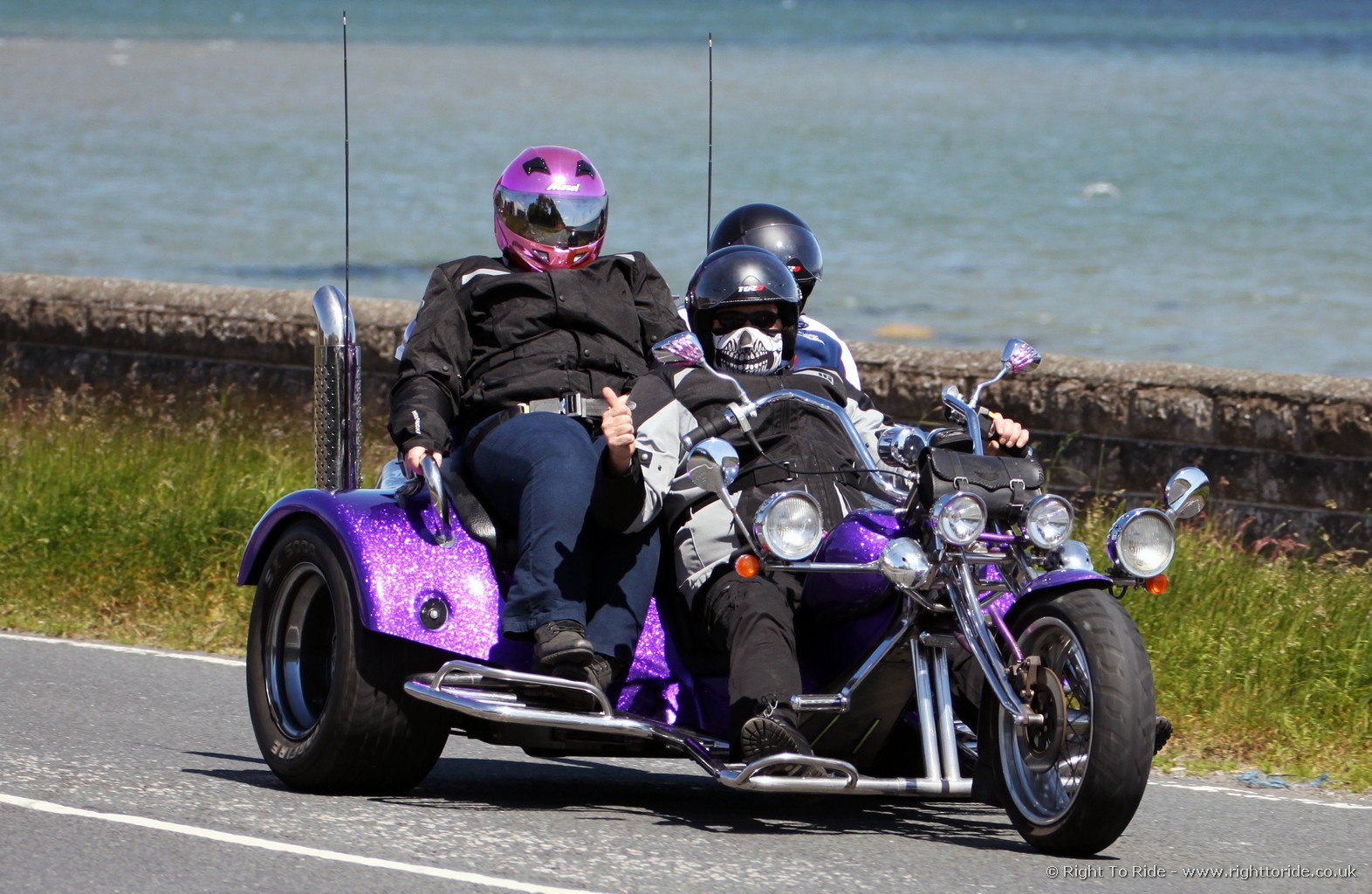
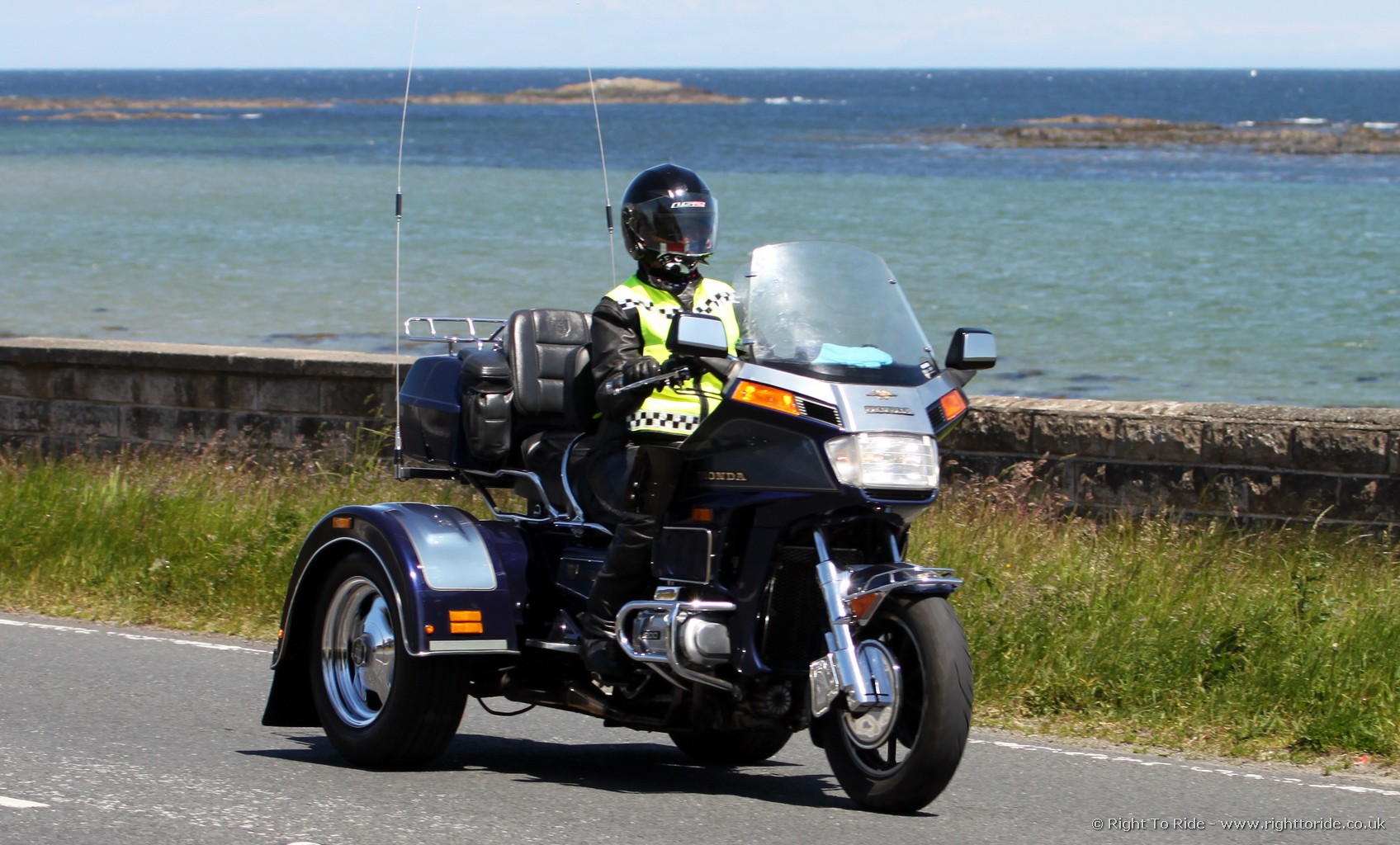
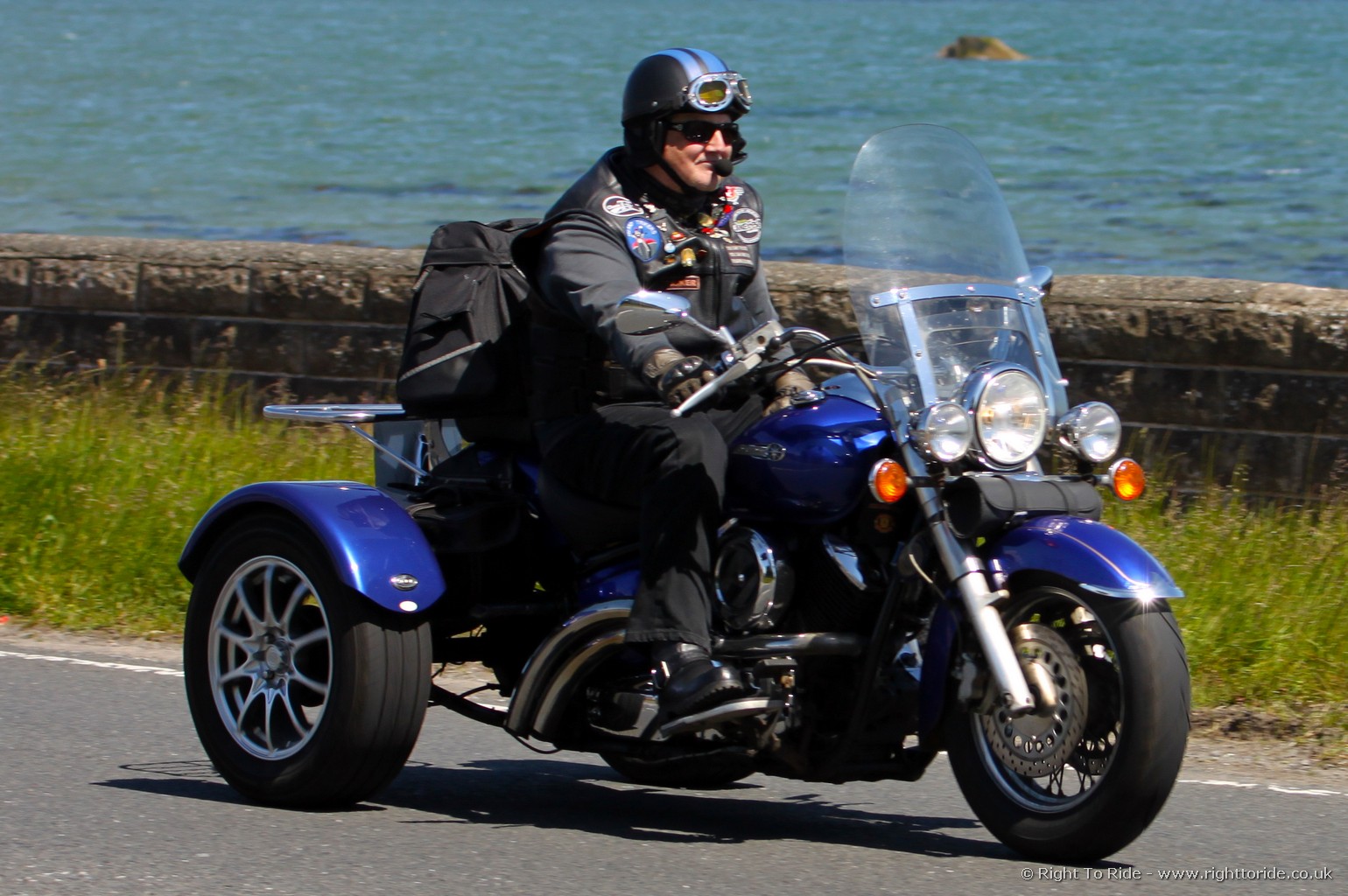
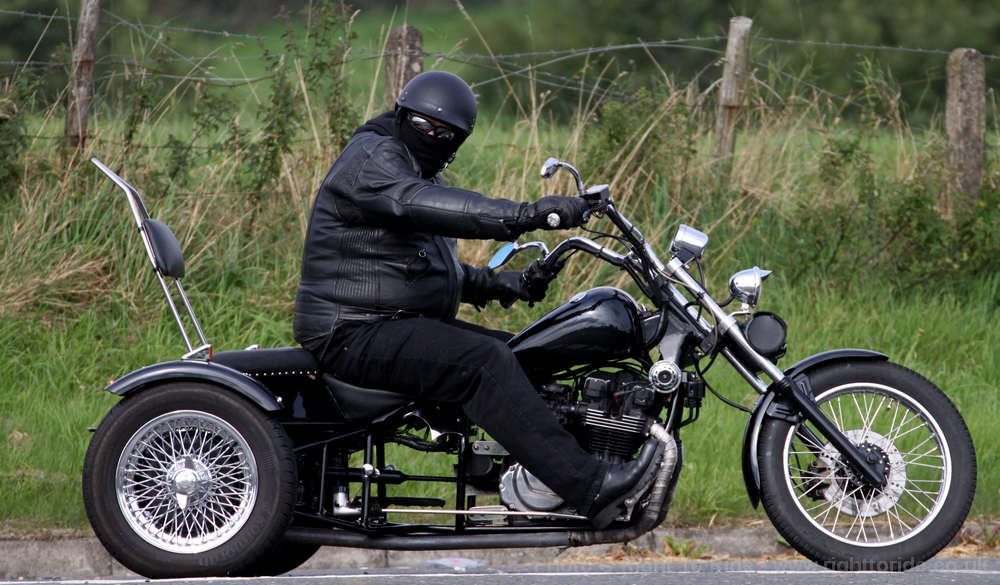
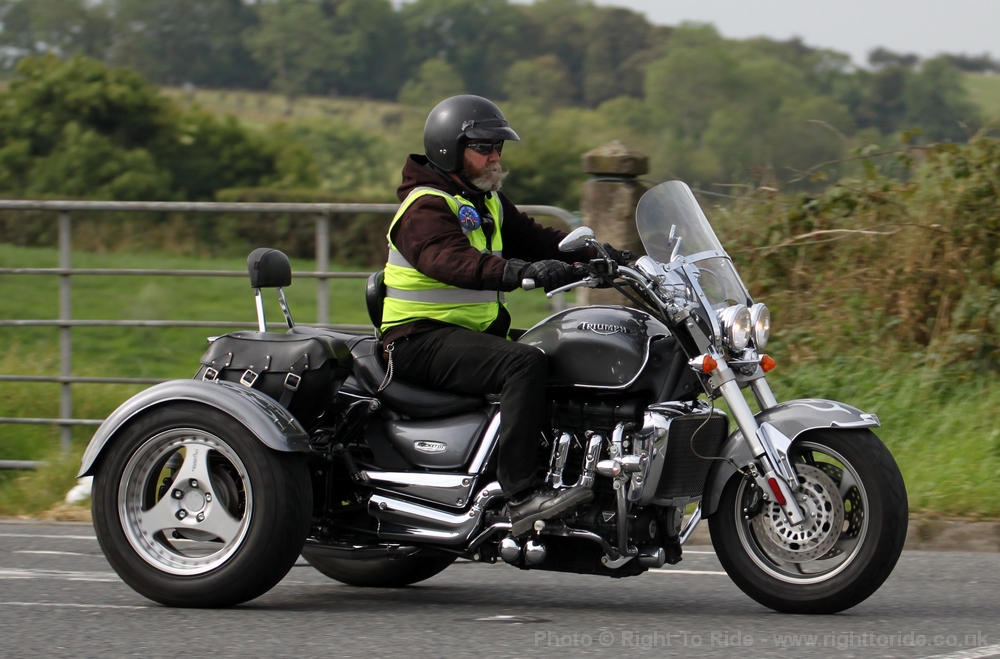

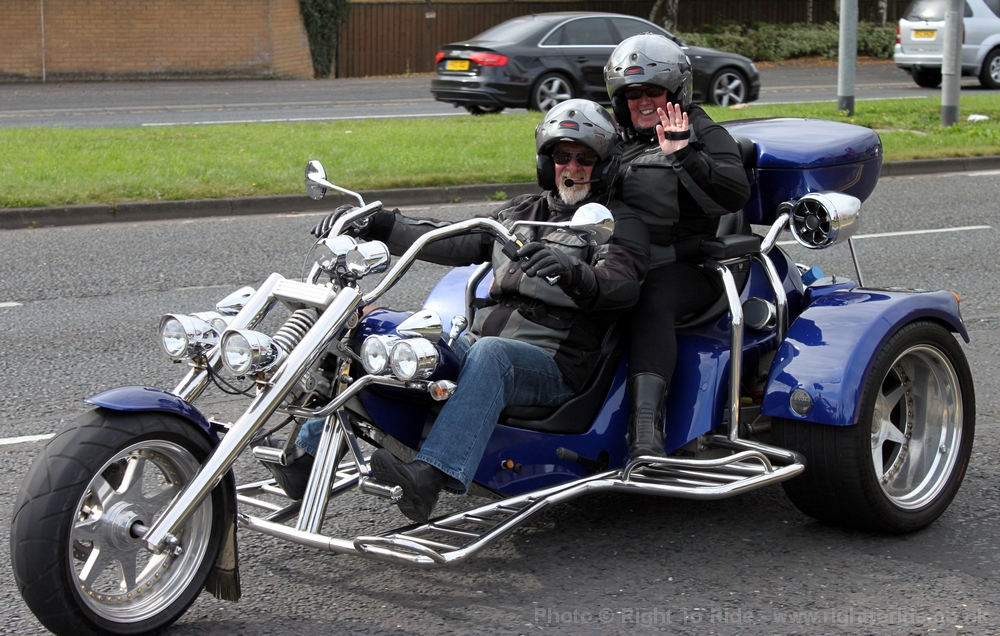

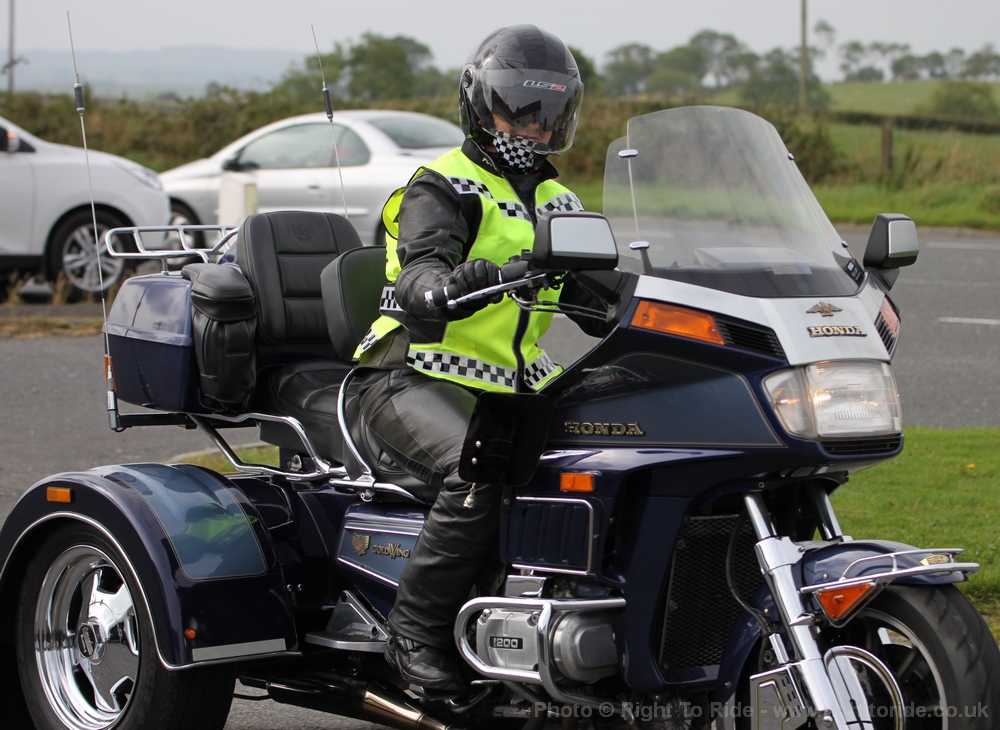
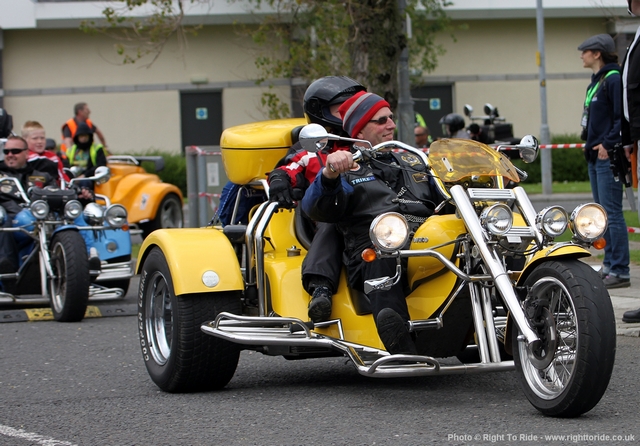
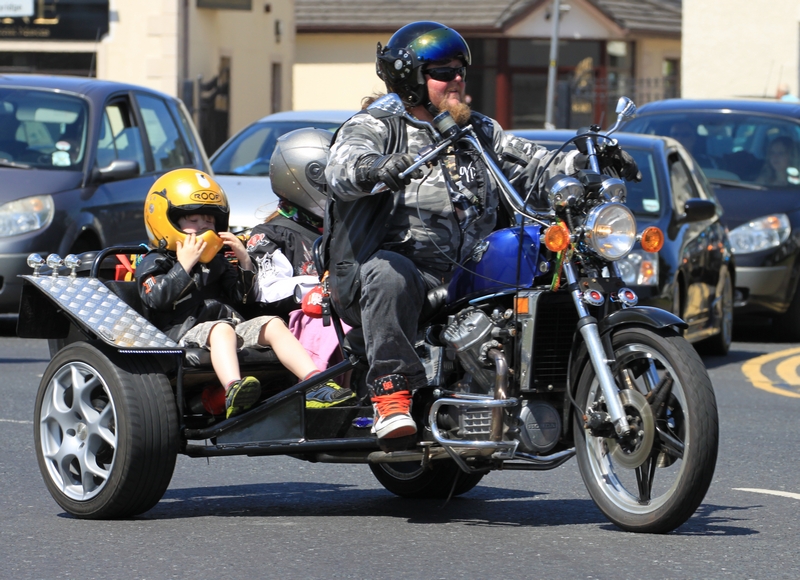
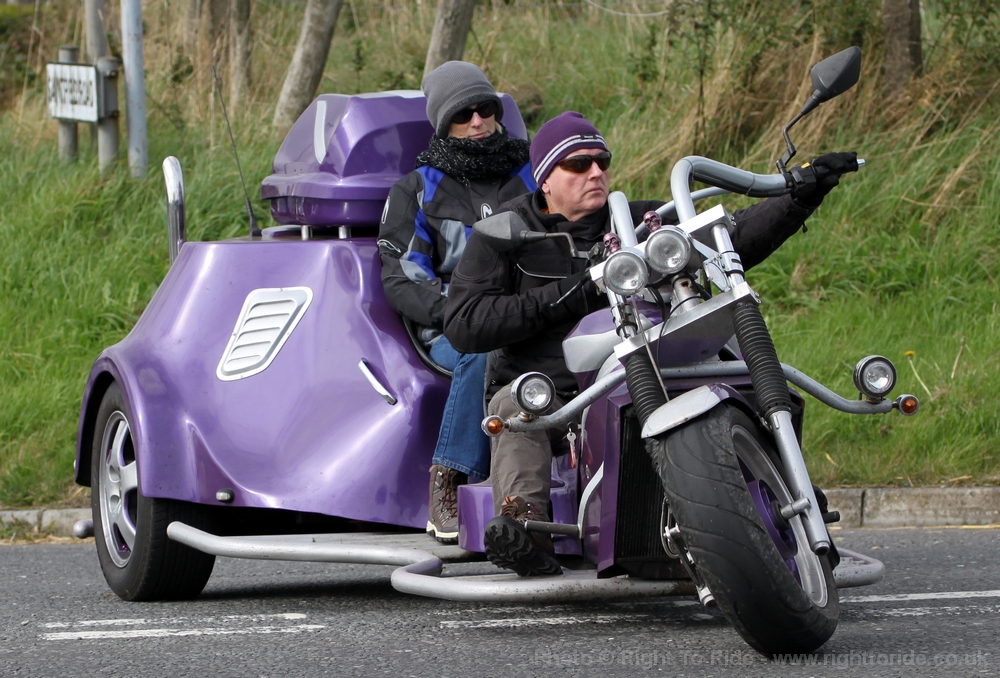

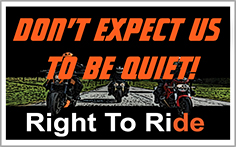
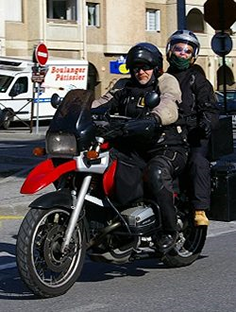
Democracy is a state of society characterized by formal equality of rights and privileges, political or social equality.
A form of government in which the supreme power is vested in the people and exercised directly by them NOT DICTATED by ill-informed bureaucrats.
This is unfounded and totally unjustified,,as the record shows,trikes are predominantly the safest way to ride and the powers that be should take that information onboard.
I personally use a helmet when the weather’s bad as I think it’s safer to be able to see as clearly as possible,but in the dry I choose a skull cap and safety sunglasses.
Received from a rider via email:
Firstly I agree with Helmet safety but I am also a believer in the riders right to choose, I’m a life long biker who will always wear a helmet but I think the rider should choose , if the rider want’s not to wear a helmet then an increased premium might be the way ahead but for trike riders if there is no statistical evidence of accident/road deaths why introduce the legislation other than to make revenue for Stormont or to increase control over the public , it is also highly likely that those that seek to implement this excessive legislation will never consult with trike riders and are highly unlikely to ride theme selves, keep up the good fight.
Garth.
Given that there have been so few serious accidents involving trikes and none wear helmets were a factor in the outcome this proposal seems totally unnessacary.
Received from our good friend in the USA:
“The mandatory helmet issue is not much different between bikes and trikes, but the greater stability of a trike offers some reason to fight against another mandatory Personal Protective Equipment law, the argument being that head injury is common in bikes, but not in trikes. It’s actually a fake argument, but since politicians pass laws based on fake reasoning, I say it’s fair.
The basic issue is that helmets are designed to protect the skull from fractures. Theoretically, a helmet absorbs the blow, reducing “head injuries.” What’s never said out loud is that Helmets are not designed to protect against brain injuries. The problem is that the human brain is simply too fragile to withstand much trauma. Skull fractures (or even removal of a section of skull for brain surgery) causes very few fatalities. Brain injuries cause considerable morbidity and many fatalities. Helmet tests measure the ability of a helmet to “absorb” impacts from a helmeted steel headform being dropped onto an anvil. The EPS liner crushes to slightly increase the impact time. The problem is that energy cannot be “absorbed” but only changed to a different form of energy.
When a helmeted head strikes something, the EPS may heat up slightly as the kinetic energy is changed to mechanical or heat energy, but the helmet still transmits the remaining kinetic energy through the skull to the brain, where it can cause significant damage. A helmet is very “effective” at preventing skull fractures and injuries to the ears, scalp, nose, etc. but not very effective at preventing brain injuries.
If this is true (and my scientist friend DQ says emphatically that it is) then helmets offer very little protection against serious brain injuries or fatalities in any sport where head injuries are likely. However, the tide is flowing strongly in favor of society requiring that we protect ourselves, and helmets are seen by politicians as the motorcycling equivalent of seat belts and air bags in automobiles. Trying to educate politicians would be an uphill battle.
So, my suggestion is to use the physical difference of three wheeled machines to argue that they don’t need a new law since they are different. Since trikes don’t fall down, the potential for head injuries of trike drivers and passengers is much less than for PTWs. The argument might include a challenge to present statistics showing that trike drivers or passengers are involved in more crashes or sustain a greater frequency of head injuries than PTW or auto drivers or passengers.
David L. Hough”
David is an American writer on motorcycle rider safety, education and training.
MAG – On Trike Helmets
MAG’s opposition to this proposal reflects the groups continued opposition of the enforcement of compulsory helmet wearing in principle by motorcycle riders.
The group formed in 1973 reiterated its, “long-standing position on the issue as it relates to all vehicle users is an unacceptable infringement of civil liberty that is not supported by an adequate body of evidence to justify it.”
The press release continues that, “Furthermore the infringement of the civil rights of bikers is a grossly disproportionate application of law. It is hypocritical to place unwarranted demands on a minority on a false premise while neglecting to address real issues.
The premise is that un-helmeted bikers represented a significant public burden in terms of health care
costs which could be minimised by enforcing helmet wearing. There is no evidence to support this assumption whereas the evidence linking other lifestyle choices to serious and fatal disorders on an incomparable scale is irrefutable.”
MAG President Ian Mutch commented: “Statistically the move seems to be trying to address a problem that does not exist. In the six years between 2008 and 2014 there have been only two fatalities and three serious injuries sustained by trike riders in Northern Ireland. No evidence exists to suggest that a helmet law might have affected this tiny number of cases.
The move to enforce helmet wearing for trike riders in common with the wider helmet law for all bikers would seem to be motivated more by an unhealthy appetite for conformity than any objective assessment.”
In an earlier article on this consultation (2nd July), Right To Ride’s Elaine Hardy stated that “there is another perspective which is that because trikes are far more stable – they have three wheels – in a certain respect, there is far less possibility of suffering injuries or fatalities by riding a trike – statistically they don’t even appear as an issue – 2 fatalities between 2008 and 2014 (6 years) in Northern Ireland – 3 seriously injured – during the same period. These figures do not reflect the fact that these riders would have died or been seriously injured anyway – in other words, head protection or lack of, wasn’t the cause of their death.”
Legislation Should Come Through The Democratic Process
We at Right To Ride are in principle, in agreement with what MAG has set out in the press release dated 22nd July.
However, in our view this perspective has limitations.
By looking closer at the underlying issues which are pertinent to Northern Ireland, specifically the manner in which the consultation was proposed and who proposed the way in which the consultation was formed, we raised a far more important problem, which is “What we do not seem to have is any commitment other than from Civil Servants, who should not, in our opinion, be a “driving” force to introduce primary legislation into a bill at this late stage in the bill’s development. This is a matter for elected representatives and a step too far for unelected officials to be considering.
Legislation should come through the democratic process – the citizen first and then our elected representatives – not driven by these civil servants and any personal road safety thoughts or good ideas that they may have.
The notion that a government department, in this instance, the DOE, its minister and officials knows better, is of concern in this last bastion of road user freedom.”
Original Source – MAG Press Release – (Motorcycle Action Group)
The BMF (British Motorcyclists Federation) http://www.bmf.co.uk have responded to the trike/helmet consultation.
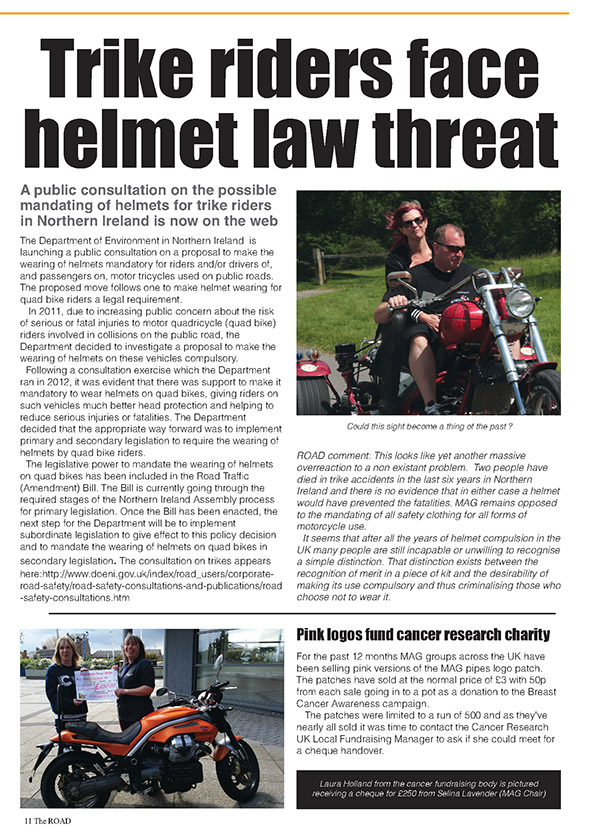
Their main position is – ” in this particular case the BMF would not support what we believe to be both disproportionate and unjustified legislation.” About to finish off ous at Right To Ride – the consultation is opened until next Wednesday 19th August.
The Motorcycle Action Group (MAG) have featured the issue in their members magazine.
Right to Ride Response To The Consultation
At Right To Ride our preferred option is Option 1: Do Nothing.
As the consultation paper outlines, this is the simplest option that no legislation would be required and most importantly there would be no cost or impact on the community or the small vehicle industry.
We also find that the department’s preferred option is not logical and does not follow the facts as regards rider and passenger injuries.
The department’s option seems to hint that retailers would do extra business in supplying helmets, however there would be an additional cost impact on agricultural trike users who only use their vehicles on road for movement between farmlands (i.e. private land). In consideration of the dire situation our farmers are in presently, this extra cost just adds to their problems.
Thus putting extra burden on the rural business (farmers) that supply the market with produce and are the voters who carry politicians to Stormont and Westminster and are already suffering hardship – has the DOE really considered these farmers?
However our concern is for those trikes that are mostly motorcycle based, car engine based and styled in a similar way to a motorcycle based trike or are cars based (front half motorcycle rear half car), in other words those trikes that would have no enclosing body work and are steered by means of handle bars.
These are the trikes mainly ridden in Northern Ireland by responsible adult enthusiasts who make up a vibrant family lifestyle community that raises thousands of pounds for charities throughout the year.
Full Consultation Response – pdf – 1.74mb – Click Here